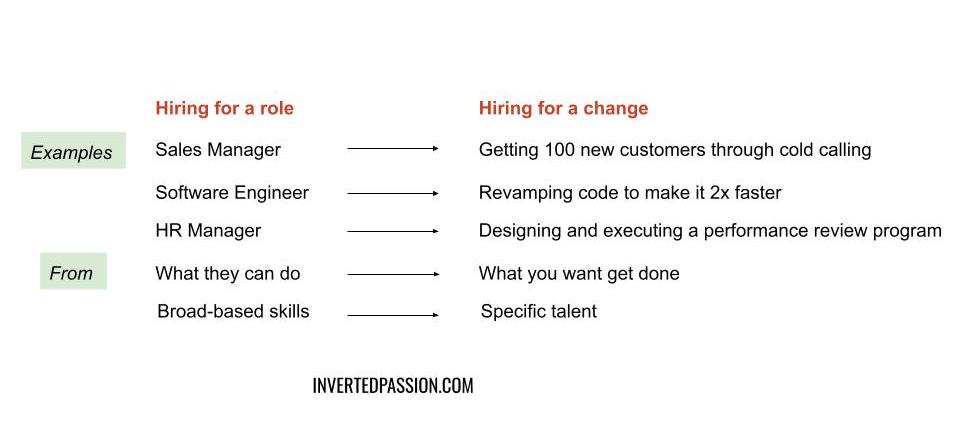It’s easy to hire people. You think of what’s the next bottleneck in your organization’s growth and hire a role to fill that bottleneck. Typically, this involves coming up with a job description (which is often copy-pasted from elsewhere), announcing the job opening, and then interviewing the candidates.
Sounds easy, isn’t it?

Hiring people is the easy bit – there are enough candidates waiting to be hired. But the challenge lies in hiring someone who emerges as a star performer, contributing significantly to your company’s growth.
Why is hiring star performers difficult? It’s often because founders don’t spend enough time trying to get clarity within their heads on what star performance means for their organizations. They usually hire for generic roles like “Sales Manager” or “Software Engineer”, and only a small percentage of such generic hires end up being good at precisely the thing that the organization needs at the moment.
What a specific “sales manager” or a “data scientist” does varies significantly from person to person. Labels can capture only so much.
So, before hiring, a founder must know what precise change a new hire is expected to bring to the organization in the next 12-18 months. No business needs “software engineers”, what they need is “developing and releasing a bug-free feature to customers to increase revenue”.
This clarity on what specific tasks a new hire is expected to do in order to be called a star performer helps in multiple ways. It gives clarity in interviews about whether an otherwise motivated person is skilled enough to bring about that change. It also helps communicate clear expectations to the candidate so there are fewer surprises later on.
Importantly, this clarity helps in the smooth onboarding of the new hire. On day 1, the candidate knows what task is she brought into the company for, and hence rather than going through generic training and onboarding, the candidate applies herself to getting up to speed on the specific things which she is hired for, which ultimately benefit the company.
So, before you hire, rather than having a vague idea of your expectations from the role, assume you’ve hired the perfect candidate and visualize what specific changes has she brought into your organization’s growth. Then go ahead and hire the person who can bring about those changes. Whether you call that person a “software engineer” or a “ninja” is beside the question. The important thing is to know clearly what are you hiring the person for.
Remember: before you hire, know what specific change you want in your organization.
This essay is part of my book on mental models for startup founders.
Join 200k followers
Follow @paraschopra